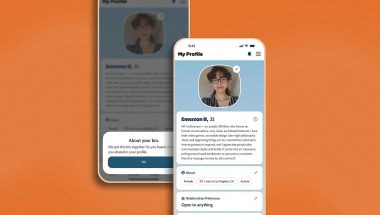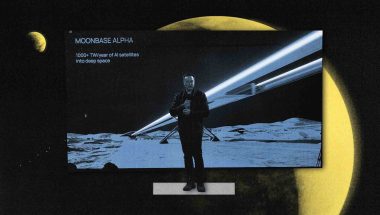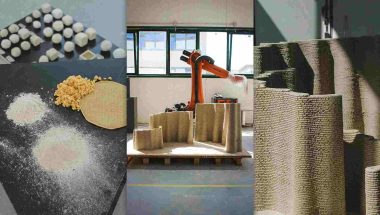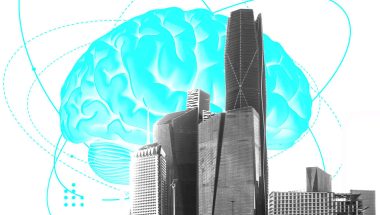Not prioritizing DE+I is leaving trillions untapped in the Middle East
DE+I drive creativity and workforce performance, but too few companies are making it a priority

Fast Company Middle East and Middle East Communications Network (MCN) have released a white paper highlighting how Diversity, Equity, and Inclusion (DE+I) can strengthen creativity, performance, and long-term growth in the Middle East.
The report was launched at the Athar Festival 2025 in Riyadh alongside a panel discussion, Beyond Representation: How Social Sustainability Drives Economic Growth, which explored the costs of exclusion, from underrepresentation in leadership to inaccessible workplaces, and how inclusive strategies can generate measurable value for businesses and society.
The report positions DE+I as a key factor in organizational success and innovation. It shows that organizations embedding inclusion into hiring, leadership, and culture outperform peers, attract top talent, and achieve higher engagement. The findings make clear that diversity alone is not enough. Equity, belonging, and representation must be embedded into everyday practices to unlock the full potential of a workforce.
Ghassan Harfouche, Group CEO at MCN MENAT, says the initiative stems from a long-held belief that inclusion is integral to business success. “At MCN, we’ve always known that DE+I is not a trend, but is essential for successful business. With 66 nationalities across our network, 47% of our agency leadership roles held by women, we see every day how DE+I power creativity, possibilities, and results,” he says.
He explains that the research was also driven by a regional gap in how companies perceive inclusion. “We identified a regional gap: DE+I is still regularly treated as a reputational add-on rather than a driver of business value. This white paper is our response, a data-driven tool designed to help organizations reframe DE+I as infrastructure for growth. With 85% of companies in our study reporting clear economic impact from DE+I, the timing couldn’t be more urgent.”
The findings show that diversity alone is not enough. Real progress comes from systems that embed equity, belonging, and representation into daily practice.
Harfouche points to MCN’s own experience as an example of how this approach can translate into results.
MCN’s diverse network shows the impact of embedding DE+I in practice. Harfouche notes, “Our teams span various borders, cultures, and generations, and we’re proud to have built an environment that fosters diverse perspectives and authentic selves. We’ve seen how that kind of inclusion drives engagement and results. And the data backs it up: 76% of companies in the region are already seeing productivity gains when DE+I is embedded in leadership and culture.” He adds that this approach is not only boosting creative output but also contributing to broader economic growth, shaping the future for the organization and the region.
That connection between leadership and inclusion is central to MCN’s approach. “We know that culture starts at the top, but it’s sustained by consistency, accountability, and trust,” says Harfouche.
Harfouche highlights the company’s commitment to inclusive leadership, saying, “That’s why we invest in inclusive leadership across every level of the organization. We regularly conduct surveys, training, and workshops to gather feedback and continually better ourselves as a workplace. Today, 89% would recommend MCN as a great place to work, and 88% feel safe being their authentic selves.” He notes that the goal is to create not just a sense of belonging, but an environment where employees can truly thrive both professionally and personally.
The paper introduces the idea of “inclusion as infrastructure”, a mindset that positions equity as a foundation rather than an initiative. For MCN, that means embedding inclusion into every part of the business, from hiring and leadership to culture and growth. “We’ve invested in the systems – recruitment, training, leadership development, feedback loops, that make inclusion sustainable. And while the work is ongoing, it’s a model we believe can be scaled to drive meaningful progress across our industry and region,” he adds.
Beyond its internal culture, MCN’s definition of purpose extends into the work it creates for clients. Harfouche notes that the company’s goal is to design campaigns that not only win awards but also drive impact.
“At MCN, purpose is embedded at the heart of how we operate: how we hire, how we lead, and, in the stories, we help shape for our clients,” he says. “We believe creativity without purpose doesn’t last. That’s why we prioritize integration and connectivity across teams, disciplines, and platforms, to ensure our work is not just award-winning, but impact-driven.”
He points to campaigns such as Recipe for Change for Arla Foods, Don’t Look Down for Fixby, The Art of Stains for OMO – Unilever, Not for First Dates for McDonald’s, and Read Better for Waterstones UK, all rooted in insight and designed to deliver purpose-led outcomes beyond the brief. “We know the one simple truth: people do their best work when they feel seen, respected, and supported. That’s how we aim to create impact, not only in the work we deliver, but in the cultures we build and industries we help move forward.”
Developed in partnership with Fast Company Middle East, the white paper offers a fresh perspective on how DE+I can strengthen economic resilience and fuel creative excellence across the MENAT region. It calls on organizations to view inclusion not as a symbolic gesture, but as fundamental to growth, progress, and long-term success.








































